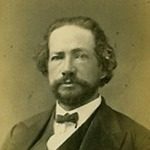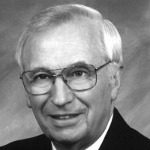Quotes about Conversion
A man may be so bold of his predestination, that he forget his conversation.
A Puritan Golden Treasury, compiled by I.D.E. Thomas, by permission of Banner of Truth, Carlisle, PA. 2000, p. 88.
External, emotional, and even temporary spiritual movement do not necessarily imply internal conversion.
Paul Alexander Altar Call Evangelism, ©9Marks. Website: www.9Marks.org. Email: info@9marks.org. Toll Free: (888) 543-1030.
Without conversion your being is vain. Is it not a pity you should be good for nothing, an unprofitable burden of the earth, a mere wart in the body of the universe? Thus you are, while unconverted…. Verily you are in vain, except you are for God. It were better you had no being than not be for Him.
The difference between an unconverted man and a converted man is not that one has sins and the other does not; but that the one takes part with his cherished sins against a dreaded God, and the other takes part with a reconciled God against his hated sins.
Scripture tells us that the state of an unconverted man is this: he sees no great felicity in the love and communion of God in the life to come, which may draw his heart thither from this present world; but he lives to his carnal self, or to the flesh; and the main bent of his life is, that it may go well with him on earth; and that religion which he has is but a little by the by, lest he should be damned when he can keep the world no longer; so that the world and the flesh are highest in his esteem, and nearest to his heart, and God and glory stand below them, and all their service of God is but a giving him that which the world and flesh can spare. This is the case of every unconverted man; and all who are in this case are in a state of misery.
The Scriptures teach that regeneration is the work of God, changing the heart of man by His sovereign will, while conversion is the act of man turning toward God with the new inclination thus given to his heart.
Conversion is not the smooth, easy-going process some men seem to think it; otherwise man’s heart would never have been compared to fallow ground and God’s Word to a plough.
Perhaps his total number of devoted followers at the end of His earthly ministry numbered little more than the five hundred brethren to whom Jesus appeared after the resurrection (I Cor. 15:6), and only about 120 tarried in Jerusalem to receive the baptism of the Holy Spirit (Acts 1:15). Though this number is not small considering that His active ministry extended only over a period of three years, yet if at this point one were to measure the effectiveness of his evangelism by the number of his converts, Jesus doubtless would not be considered among the most productive mass evangelists of the church.
The Master Plan of Evangelism, Fleming H. Revell Company, p. 34. Get this book!
If our conversion, our turning, is basically understood to be something we do ourselves instead of being something God does in us, then we misunderstand it. Conversion certainly includes our own actions. We must make a sincere commitment. We must make a self-conscious decision. Even so, conversion – real conversion – is more than that. Scripture is clear in teaching that we are not all journeying toward God – some having found Him, others still seeking. Instead, Scripture presents us as needing to have our hearts replaced, our minds transformed, our spirits given life. We can do none of this for ourselves. The change each human needs, regardless of how we may outwardly appear, is so radical, so near our roots, that only God can bring it about. We need God to convert us.
Nine Marks of a Healthy Church, Crossway, 2000, p. 99. Get this book!
According to the Bible, our repentance and faith are gifts of God to us; our conversion, our great change, occurs only by God’s grace.
Nine Marks of a Healthy Church, Crossway, 2000, p. 100. Get this book!
If you don’t believe that the gospel is the good news of God’s action – the Father electing, the Son dying, the Spirit drawing – that conversion is only our response to God’s giving us the grace-gifts of repentance and faith, and that evangelism is our simple, faithful, prayerful telling of this good news, then you will actually damage the evangelistic mission of the church by making false converts.
Who can deny that much modern evangelism has become emotionally manipulative, seeking simply to cause a momentary decision of the sinner’s will, yet neglecting the biblical idea that conversion is the result of the supernatural, gracious act of God toward the sinner?
Conversion is a single entity that has two distinguishable but inseparable aspects: repentance and faith. Repentance is the unbeliever’s turning away from sin, and faith is his or her turning to Christ. They are, respectively, the negative and positive aspect of the same occurrence.
Christian Theology, Baker, 1998, p. 946. Get this book!
[Our flesh] indicates that the essential way in which people are rebelling against God is that they are assuming that, like Him, they can make the decisions necessary for enjoying a fulfilled and happy future. The folly of this rebellion is that people think that they love themselves more, are wiser, and thus better able than the all-loving, omniscient, omnipotent God to provide for themselves the fulfillment they crave. Thus conversion, according to Jesus, reverses the act of the Fall and makes a declaration, not of independence from God, but dependence on Him.
The Unity of the Bible, Zondervan Publishing House, 1992. Get this book!
Conversion is our willing response to the gospel call, in which we sincerely repent of sins and place our trust in Christ for salvation.
Systematic Theology, Zondervan, 1994, p. 709. Used by Permission.
Get this book!
While it is true that people are converted and matured through expositional preaching, the word of the gospel must be wedded to the Spirit’s work in order for conviction of sin, regeneration, repentance and faith, and lifelong perseverance to come. Or to put it differently, “Neither he who plants nor he who waters is anything, but only God who gives the growth” (1 Cor. 3:7)
Expositional Preaching, ©9Marks. Website: www.9Marks.org. Email: info@9marks.org.Toll Free: (888) 543-1030. Used by Permission. p. 34.
The sure test of the quality of any supposed change of heart will be found in its permanent effects. Whatever, therefore, may have been our inward experience, whatever joy or sorrow we may have felt, unless we bring forth fruits meet for repentance, our experience will profit us nothing. Repentance is incomplete unless it leads to confession and restitution in cases of injury; unless it causes us to forsake not merely outward sins, which others notice, but those which lie concealed in the heart; unless it makes us choose the service of God and live not for ourselves but for Him. There is no duty, which is either more obvious in itself, or more frequently asserted in the Word of God, than that of repentance.
Clearly many Christians have not embraced the fact that Christians must be committed to Christ and His teachings. They may have mentally assented to certain gospel facts…joined a church…repeated a prayer…walked forward at an evangelistic meeting. But by any biblical measurement they were never converted. There was no transforming conviction of sin, no repentance, no commitment to Christ’s lordship, no love for those who love Christ.
Conversion is a work of the Holy Spirit changing our nature, not the result of a seeker making a decision.
The Story of the Fall by Michael Lawrence taken from Biblical Theology by Michael Lawrence, copyright 2010, Crossway Books, a division of Good News Publishers, Wheaton Illinois 60187, www.crosswaybooks.org. Page 137.
There are three conversions: the conversion of the heart, mind and purse.
There can be no repentance or faith until the heart has been re-created. But in the moment of regeneration, the Holy Spirit imparts the gift of repentant faith to sinners – bringing them to saving faith in Christ and enabling them to turn away from sin. The result is a dramatic conversion.
Our job is not to moralize the unconverted; it’s to convert the immoral.
The true convert is a disciple, a person who has accepted and submitted himself to Jesus Christ, whatever that may mean or demand. The truly converted person is filled with the Holy Spirit and given a new nature that yearns to obey and worship the Lord who has saved him. Even when he is disobedient, he knows he is living against the grain of his new nature, which is to honor and please the Lord. He loves righteousness and hates sin, including his own.
Disciples forsake the world and cling to Jesus ’till he comes. Converts don’t. Disciples aren’t engaged in a culture war. Converts are. Disciples cherish, obey, and share the word of God. Converts don’t. Disciples choose Jesus over anything and everything else. Converts don’t. Converts run when the fire comes. Disciples don’t (Unknown Iranian Church Leader).
This is somewhat of the word which He now speaks unto you: Why will you die? Why will you perish? Why will you not have compassion on your own souls? Can your hearts endure, or can your hands be strong, in the day of wrath that is approaching?… Look unto Me, and be saved; come unto Me, and I will ease you of all sins, sorrows, fears, burdens, and give rest to your souls. Come, I entreat you; lay aside all procrastinations, all delays; put me off no more; eternity lies at the door…do not so hate Me as that you will rather perish than accept of deliverance by Me. These and the like things does the Lord Christ continually declare, proclaim, plead and urge upon the souls of sinners… He does it in the preaching of the Word, as if He were present with you, stood amongst you, and spoke personally to every one of you… He has appointed the ministers of the gospel to appear before you, and to deal with you in His stead, avowing as His own the invitations which are given you in His name.
The proper understanding of everything in life begins with God. No one will ever understand the necessity of conversion who does not know why God created us. He created us “in His image” so that we would image forth his glory in the world. We were made to be prisms refracting the light of God’s glory into all of life. Why God should want to give us a share in shining with His glory is a great mystery. Call it grace or mercy or love – it is an unspeakable wonder. Once we were not. Then we existed – for the glory of God!
Desiring God, Bethlehem Baptist Church, 1996, p. 55, Used by Permission, www.desiringGod.org. Get this book!
Conversion, then, is repentance (turning from sin and unbelief) and faith (trusting in Christ alone for salvation). They are really two sides of the same coin. One side is tails – turn tail on the fruits of unbelief. The other side is heads – head straight for Jesus and trust His promises. You can’t have the one without the other any more than you can face two ways at once, or serve two masters.
Desiring God, Bethlehem Baptist Church, 1996, p. 61, Used by Permission, www.desiringGod.org. Get this book!
The native hardness of our hearts makes us unwilling and unable to turn from sin and trust the Savior. Therefore conversion involves a miracle of new birth. Thus new birth precedes and enables faith and repentance. Nevertheless, faith and repentance are our acts. We are accountable for them. By the miracle of new birth, by pure grace, God grants the inclination we need.
Desiring God, Bethlehem Baptist Church, 1996, p. 62, Used by Permission, www.desiringGod.org. Get this book!
Perhaps you can see why it is astonishing to me that so many people try to define true Christianity in terms of decisions and not affections. Not that decisions are unessential. The problem is that they require so little transformation. Mere decisions are no sure evidence of a true work of grace in the heart. People can make “decisions” about the truth of God while their hearts are far from Him.
The Dangerous Duty of Delight, Copyright 2001, p. 28, John Piper. Used by permission. www.DesiringGod.org.
We must be deeply converted in order to enter the kingdom of heaven, and we are converted when Christ becomes for us a Treasure Chest of holy joy.
Desiring God, Bethlehem Baptist Church, 1996, p. 66, Used by Permission, www.desiringGod.org.
We must never forget that good feelings alone in religion are not the grace of God. We may know the truth intellectually. We may often feel pierced in conscience. We may have religious affections awakened within us, have many anxieties about our souls, and shed many tears. But all this is not conversion. It is not the genuine, saving work of the Holy Spirit.
I doubt, indeed, whether we have any warrant for saying that a man can possibly be converted without being consecrated to God!… If he was not consecrated to God in the very day that he was converted and born again, I do not know what conversion means. Are not men in danger of undervaluing and underrating the immense blessedness of conversion? Are they not, when they urge on believers the “higher life” as a second conversion, underrating the length, and breadth, and depth, and height, of that great first chapter which Scripture calls the new birth, the new creation, the spiritual resurrection? I may be mistaken. But I have sometimes thought, while reading the strong language used by many about “consecration,” in the last few years, that those who use it must have had preciously a singularly low and inadequate view of “conversion,” if indeed they knew anything about conversion at all. In short, I have almost suspected that when they were consecrated, they were in reality converted for the first time.
Conversion occurs when sinners turn to God in repentance and faith for salvation. Paul describes the conversion of the Thessalonians, “For they themselves report concerning us the kind of reception we had among you, and how you turned to God from idols to serve the living and true God” (1 Thes. 1:9). Sinners are converted when they repent of their sins and turn in faith to Jesus Christ, trusting in him for the forgiveness of their sins on the Day of Judgment.
How Does Hell Glorify God? © 9Marks. Website: www.9Marks.org. Email: info@9marks.org. Toll Free: (888) 543-1030. Used by Permission.
It is evident that our conversion is sound when we loathe and hate sin from the heart.
True conversion to Christ involves a miracle, a transformation, a born-again experience whereby one is given an entirely new heart with new power and new desires resulting in a new life.
Another proof of the conquest of a soul for Christ will be found in a real change of life. If the man does not live differently from what he did before, both at home and abroad, his repentance needs repented of, and his conversion is a fiction.
Many a man has died from internal bleeding, and yet there has been no wound whatever to be seen by the eye. You may go to hell as well dressed in the garnishings of morality as in the rags of immorality. Unless the very center of your soul and the core of your being be made obedient to the living God, He will not accept you, for He looks not only to your outward condition, but to your heart’s secret loyalty or treachery toward Himself.
The fact is, brethren, we must have conversion work here. We cannot go on as some churches do without converts. We cannot, we will not, we must not, we dare not. Souls must be converted here, and if there be not many born to Christ, may the Lord grant to me that I may sleep in the tomb and be heard no more. Better indeed for us to die than to live, if souls be not saved.
It is a very solemn delusion when ministers think they are prospering, and yet do not hear of conversions.
True conversion is more of an ongoing activity than a onetime experience. It is the act of deliberately and repeatedly turning from vanity, sin and Satan to serve the true and living God.
There are so many stony ground hearers, who receive the Word with joy, that I have determined to suspend my judgment till I know the tree by its fruits. I cannot believe they are converts until I see fruit brought back; it will never do a sincere soul any harm.






























